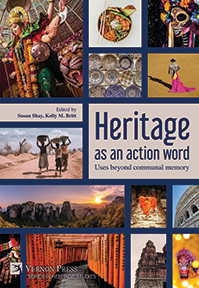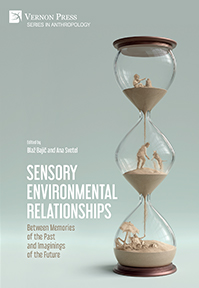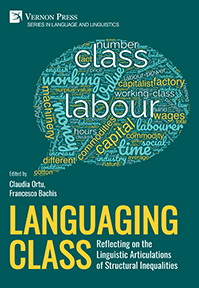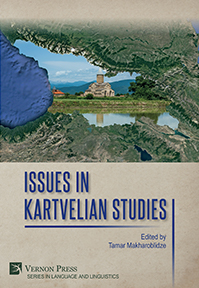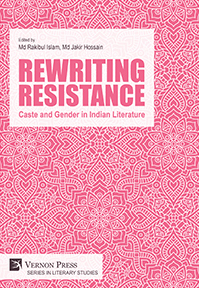Search
Browse
by Publication status
by Subject
Anthropology (26) Art (171) Business and Finance (38) Cognitive Science and Psychology (63) Communication and Journalism (51) Economics (116) Education (71) History (169) Human Geography (23) Interdisciplinary (43) Language and Linguistics (178) Law (16) Music Studies (18) Philosophy (222) Political Science and International Relations (127) Sociology (404) Statistics and Quantitative Methods (21)by Series
Series in Literary Studies (62) Series in Philosophy (57) Series in Education (49) Series in Sociology (42) Series in World History (31) Series in Politics (30) Bridging Languages and Scholarship (26) Series in Language and Linguistics (25) Cognitive Science and Psychology (20) Series in Philosophy of Religion (20) Series in American History (19) Series in Art (19) Critical Perspectives on Social Science (16) Series in Cinema and Culture (16) Curating and Interpreting Culture (15) Series on the History of Art (14) Series in Anthropology (13) Series in Critical Media Studies (13) Economics (13) Series in Business and Finance (12) Series in Music (12) Series in Performing Arts (9) Philosophy of Personalism (8) Series in Communication (8) Series in Law (8) Series in Economic Methodology (7) Series on Climate Change and Society (7) Classics in Economics (6) Series in Economic Development (6) Women's Studies (6) Philosophy of Forgiveness (5) Series in Built Environment (5) Series in Economic History (5) Series in Philosophy of Science (4) Series in Social Equality and Justice (4) Series on the History of Science (4) Serie en Sociología (3) Series in Contemporary History (3) Series in Creative Writing Studies (3) Series in Design (3) The Interdisciplinary Built Environment (3) Series in Heritage Studies (2) Series in Innovation Studies (2) Serie en Ciencias Políticas (1) Serie en Comunicación y Medios (1) Serie en Entorno Construido (1) Serie en Estudios Culturales (1) Serie En Estudios Literarios (1) Serie en Filosofía (1) Serie en Música (1) Series in Classical Studies (1) Series in Economics of Technological Change (1) Series in Philosophy of Race (1) Series in Urban Studies (1)by Language
English Spanishby Author
Browsing with filters

Heritage as an action word: Uses beyond communal memory
Edited by
Susan Shay, Heritage Research Centre, University of Cambridge
and Kelly M. Britt, Brooklyn College and The Graduate Center, City University of New York, United States
Availability: In stock
242pp. ¦ $104 £83 €97
There is no limit to what constitutes heritage. By definition, heritage is the use of the past for present purposes. Yet, to any given group or population, heritage can be a multitude of things and can serve a variety of purposes. Based on shared memory, heritage can be tangible or intangible, boundless in variety and scope: it can be, for example, objects, landscapes, food or clothing, music or dance, sites or statues, monuments or buildings. Importantly, however, heritage also has many and varied uses and powers. It can be used to control, to unite, to engage, and to empower people, communities, and nations. In this interdisciplinary volume, authors from around the world explore how different communities, nations, and groups intentionally and creatively use heritage, both tangible and intangible, in a wide variety of ways to positively address social and environmental issues. Significantly, these studies demonstrate how heritage can be an exceptionally valuable tool for political, economic, and social change. Insightful studies are presented pertaining to heritage as social memory, including the nationalistic political use of heritage, heritage as resistance to political powers, traditional knowledge as environmental science, heritage for legal and community action, heritage for building peace, heritage for Indigenous and minority empowerment, and heritage for exploring the past through phenomenological methods. The goal of this volume is to move beyond seeing heritage as only social memory, a mere interpretation of static past events, people or places, and instead explores critically the variety of ways heritage is engaged in the present and can be in the future.
Sensory Environmental Relationships: Between Memories of the Past and Imaginings of the Future
Edited by
Blaž Bajič, University of Ljubljana, Slovenia
and Ana Svetel, University of Ljubljana, Slovenia
Availability: In stock
216pp. ¦ $87 £73 €80
Sensory environmental relationships – understood as dynamic, embodied, and emplaced affective sensory perceptions in (and of) the environment – invite us to remember the past, infuse our experiences of the present, and entice us to imagine the future. Ethnographically specific, socially and culturally nuanced approaches to environmental relationships require considerable conceptual and practical flexibility and inventiveness. Reflecting this commitment, 'Sensory Environmental Relationships' aims to offer a new anthropological understanding of how, in our individual and collective lives, senses, places, and temporalities intersect. While anthropologists have been studying the sensory environmental relationships in connection to people’s pasts and presents, futures remain conspicuously absent. By bringing different timeframes into the foreground of the analysis, this volume contributes to filling in the gap in our understanding of the human experience. The volume’s ethnographically based contributions address the questions of how embodied and emplaced practices of sensing, while moving or staying in place in diverse environments, engender, inform, and affect the processes of remembering (and forgetting) the past, experiencing the present, and imagining the future. Drawing on the fields of environmental anthropology, sensory studies, studies of movement and mobility, memory studies, and other related (sub)disciplines, as well as diverse, epistemologically and methodologically experimental approaches, the volume explores the ways in which sensory environmental relationships “touch” upon our pasts, presents, and futures.
Languaging Class: Reflecting on the Linguistic Articulations of Structural Inequalities
Edited by
Claudia Ortu, University of Cagliari, Italy
and Francesco Bachis, University of Cagliari, Italy
Availability: In stock
192pp. ¦ $85 £70 €80
This volume explores the issue of social class from the point of view of its linguistic articulations. Indeed, as Machin and Richardson (2008) stated, “discourses may be variously approached as (often simultaneously) reflecting class structures, as a site of class inequalities, as expressive of class identities or class consciousness and/or as a constituent part of more performative class action.” Some of the contributions that make up the volume were presented at a conference held at Cagliari University, Italy, in 2017 and responded to the call for analyses on the role of language in reflecting, maintaining, enacting, and inculcating ideas on social class in literary and non-literary texts and discourses in any cultural or linguistic setting. This volume aspires to encourage scholars in disciplines and academic fields that have shied away from reflections on structural inequalities in favor of studies on ethnic, gender, and cultural identities in the last decades to take back on board the concept of social class and to engage with it in a novel way. The variety of approaches – ranging from the more traditional sociolinguistic one, anthropology, to literary and discourse studies – and cultural settings – with case studies coming from 3 continents – represented in the chapters show that social class is a productive and illuminating concept for trying to (re)make sense of social reproduction and change.
Issues in Kartvelian Studies
Edited by
Tamar Makharoblidze, Ilia State University, Georgia
Availability: In stock
299pp. ¦ $79 £65 €74
Georgia is a part of the Caucasus region, located at the intersection of Eastern Europe and Western Asia. It is bounded to the west by the Black Sea, to the north and east by Russia, to the south by Turkey and Armenia, and to the southeast by Azerbaijan. Georgia covers a territory of 69,700 square kilometres (26,911 sq mi), and its approximate population is about 3.716 million. Georgia is a motherland of Iberian or Kartvelian languages: Georgian, Svan, Megrelian and Laz, a language family native to the South Caucasus. This diverse collection is devoted to a wide range of linguistic works, such as descriptive studies of the Kartvelian languages and Georgian sign language, along with some theoretical contributions, dialectology, lexicography, psycholinguistics and computational linguistics, as well as history, ethnography, religion and educational issues. These articles are not only the best studies of Kartvelology but also clearly show its contribution to world science.
Rewriting Resistance: Caste and Gender in Indian Literature
Edited by
Rakibul Islam, Aligarh Muslim University Centre at Jangipur Murshidabad, West Bengal, India
and Jakir Hossain, Chitta Mahato Memorial College,Purulia, West Bengal, India
Availability: In stock
204pp. ¦ $70 £55 €61
‘Rewriting Resistance: Caste and Gender in Indian Literature’ explores the claustrophobic shadow of discrimination hanging over Indian women and lower caste people from ancient times. It examines how different literary figures paint a vivid and descriptive picture of the physical and psychological oppression faced throughout India. The book traces feminist resistance, subaltern resistance, and resistance during the anti-colonial struggle, with the literary outputs discussed working as socio-political activity against dominant ideologies. The volume further talks about the responsibility, not only of those oppressed, but also of us as human beings, to speak out against the violation of human rights and for justice. So, the book focuses on the literary writers who always dream of a better India where all people, regardless of their caste, class and gender, can live and breathe freely. The book is divided into three parts. Part I describes the plight of women, their commodification and the politics around them, and how they fight hard to regain their faded identity. Part II depicts the interesting findings on gender-caste intersections and discrimination. Part III explores the struggle of the low caste, specifically male members of Dalit community, along with their history. It further portrays how orthodoxy in rituals creates the burden of traditional and existential crises. ‘Rewriting Resistance: Caste and Gender in Indian Literature’ re-visits Indian literary texts in terms of what they reveal about the resistance registered through the suffering of human beings (women and Dalits) at the hands of fellow human beings, and further links the discussion to our contemporary situation. The book has a unique quality in that it is not only a detailed study of select Indian English texts, but also delves into an in-depth analysis of texts from Bengali, Urdu, and Hindi literature. The work is likely to affect and appeal to students, scholars and academics, and can be adopted for classroom teaching and research purposes as well.

